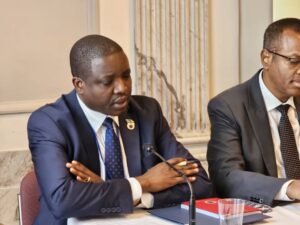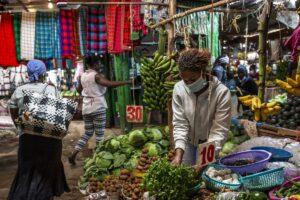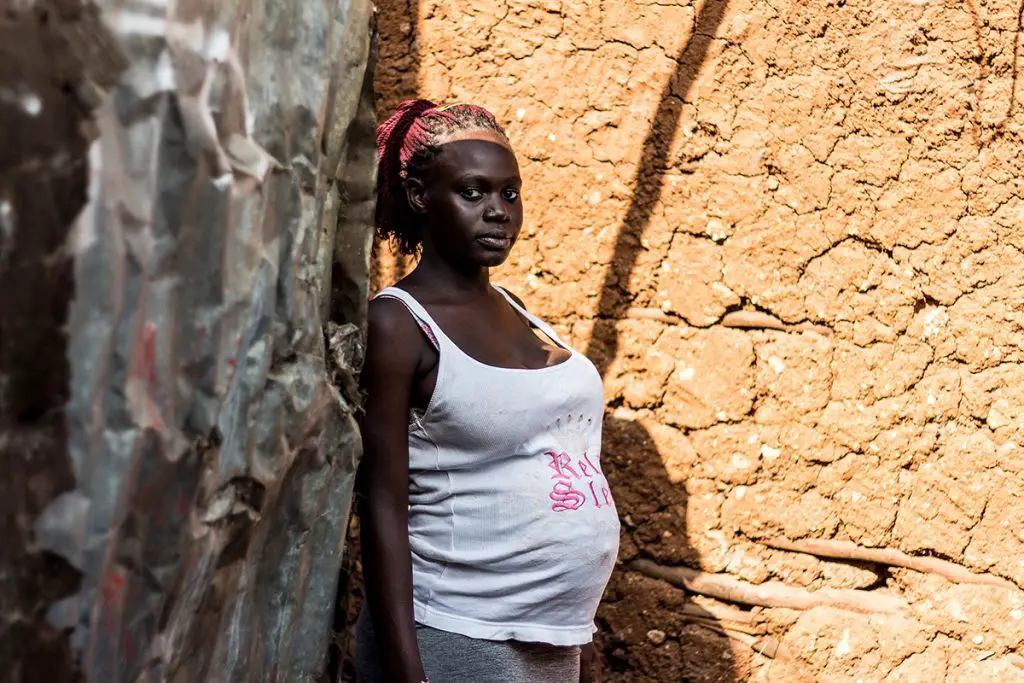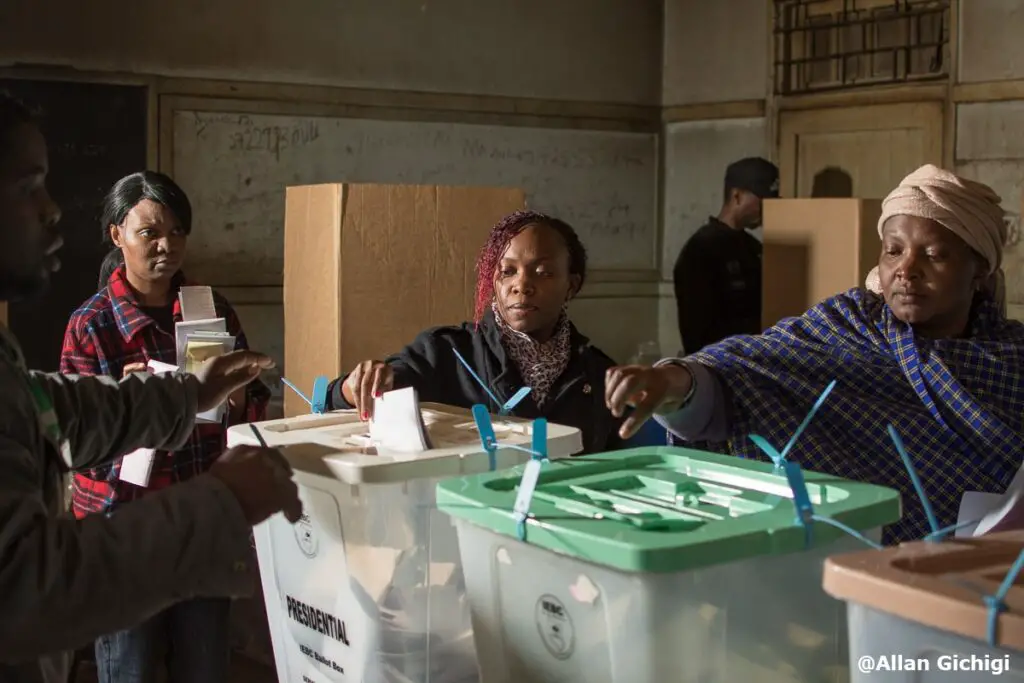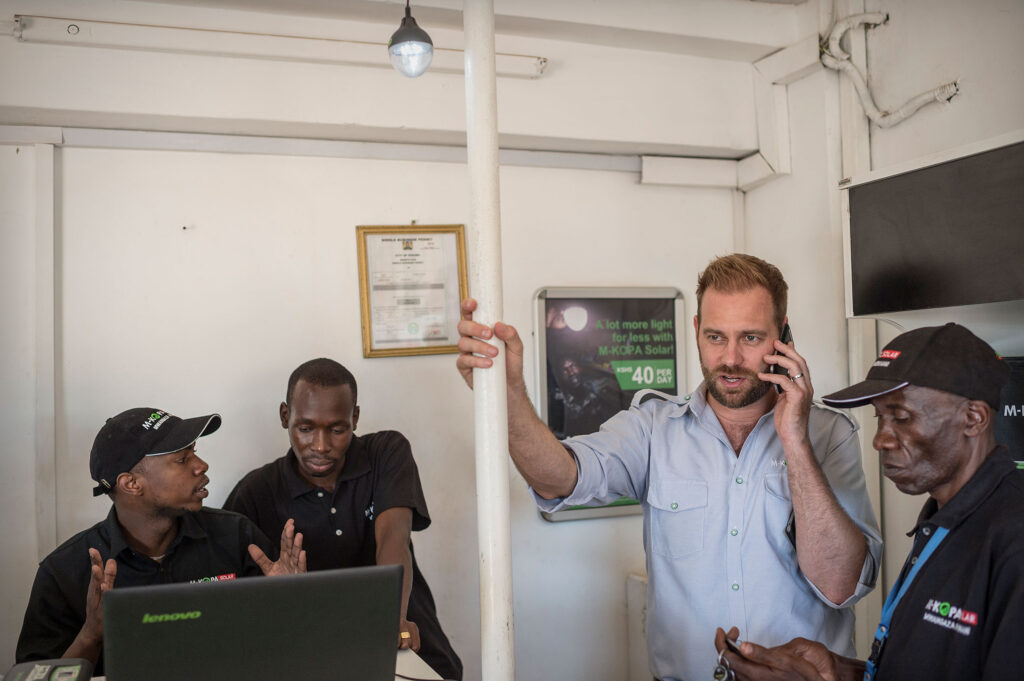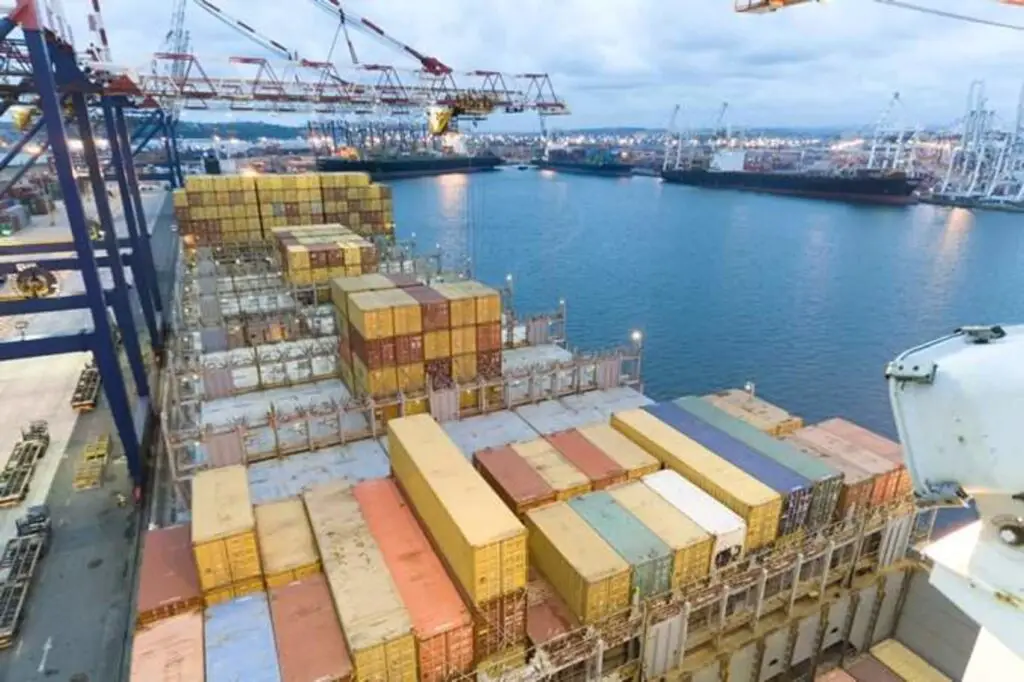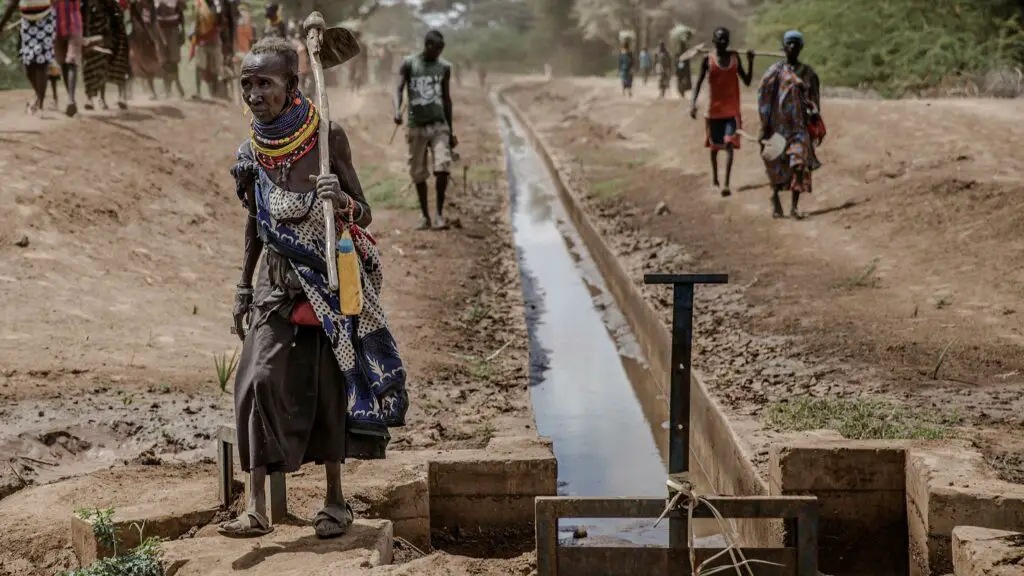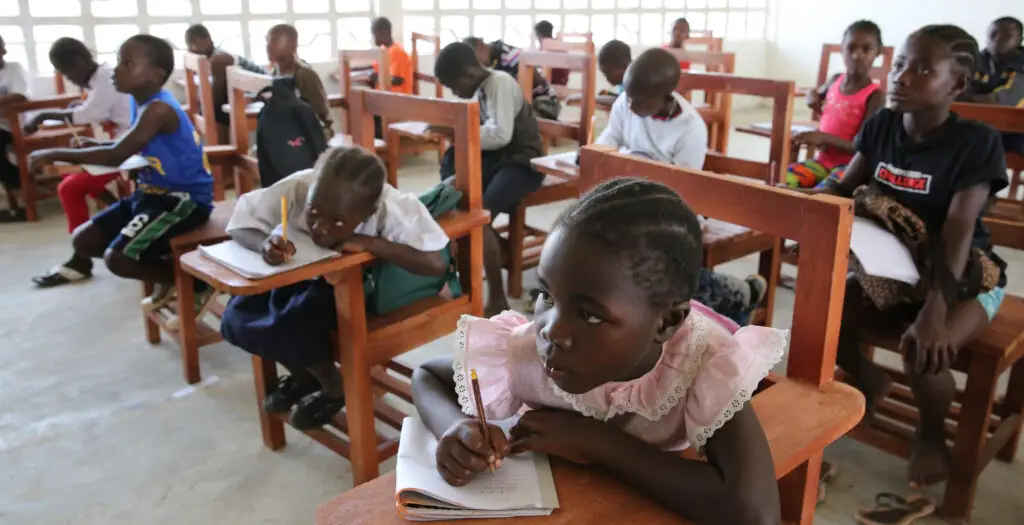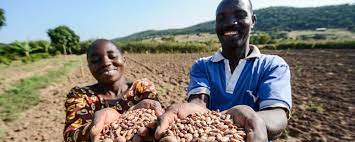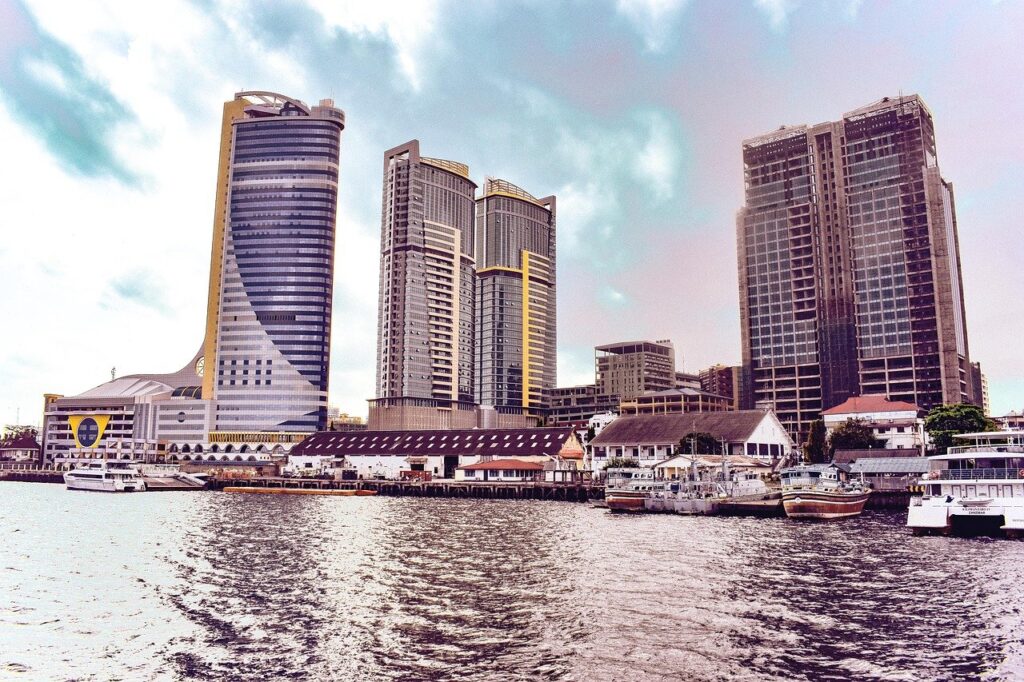- EAC monetary affairs committee to discuss single currency progress in Juba talks
- Transport and food prices drive down Kenya’s inflation to 5% in April
- Payment for ransomware attacks increase by 500 per cent in one year
- History beckons as push for Kenya’s President Ruto to address US Congress gathers pace
- IMF’s Sub-Saharan Africa economic forecast shows 1.2 percent GDP growth
- The US Congress proposes extending Agoa to 2041, covering all African countries
- Millions at risk of famine as fuel tax row halts UN aid operations in South Sudan
- Empowering the Future: Humanity Protocol’s Dream Play Initiative
Browsing: World Bank
World Bank further notes that the unified digitisation of the East African economy is estimated to generate up to a US$2.6 billion boost in GDP and 4.5 million new jobs that will largely benefit those at the bottom of the pyramid.
Data by GSMA reveals that by the end of 2020, 495 million people subscribed to mobile services in Sub-Saharan Africa, representing 46 percent of the region’s population, an increase of almost 20 million on 2019.
GSMA revealed that smartphone connections will more than double by 2025 in Sub-Saharan Africa with the East African Community registering the largest incremental growth, led by Rwanda and Tanzania. …
Rural Farmers Hub will receive financial support worth US$15,000. It is a precision management solution for crop health and soil quality assessment created for small farmers, extensive plantations, and industrial out-growers.
Rural Farmers Hub provides intelligent maps to plan precise fixation of defects in soil and crops and develop various AI algorithms for agricultural application in Africa, showing how data can significantly impact the agriculture sector.
The company works with an extension worker network of over 200 members and have since reached over 25,000 smallholder farmers. They target ten vital corporate customers and an estimated 250,000 smallholder farmers within 24 months.…
Studies indicate that girls marrying or dropping out of school early are more likely to have poor health, bear more children over their lifetime and earn less in adulthood. Ending early child marriage according to a report (The cost of not investing in girls: Child marriage, early childbearing, low educational attainment for girls, and their impacts in Uganda), could generate up to US$2.7 billion in annual benefits (in purchasing power parity terms)which includes lower population, among others.
Moreover, it would contribute to increased earnings for women today had they been able to avoid early marriage, say, in 2015.
Instead, up to US$500 million is lost. The loss according to the report is due to risks associated with early marriage and childbirth such as under-five mortality and stunting for young children. Moreover, with a lower population, governments could invest resources to improve the quality of the services provided, instead of squeezing …
- Kenya’s economy is expected to expand the fastest in 2022 despite this being an electioneering year
- This is a much better performance than any other since the onset of the multiparty system 20 years ago
- It is estimated and expected that the economy will grow by 5.4 per cent by the time we get to September 2022
Kenya Economy
A projection of global economists has suggested that Kenya’s economy is expected to expand the fastest in this electioneering year despite not knowing who will win the 2022 election in Kenya.
This growth is more than any other since the onset of the multiparty system 20 years ago shrugging off politics in Kenya 2022.
This increase, they say is supported by increased expenditure and also the need for more human resources to run campaigns with the introduction of features like social media campaigns which also is a way of collecting revenue.…
- M-KOPA enables underbanked customers in select African markets to access a broad range of products and services without collateral or a guarantor.
- M-KOPA has raised $190 million over the past decade
- M-KOPA is known majorly for its pay-as-you-go (PAYG) financing model that allows customers to build ownership of appliances over time by paying an initial deposit followed by flexible micro-payments
- M-KOPA is looking to expand its flexible daily and weekly payments model by scaling financial services products such as health insurance, cash loans and BNPL merchant partnerships
M-KOPA began commercial sales in Kenya in October 2012 following 2 years of piloting and development.
The young startup expanded to Uganda a year later and commenced operations in Tanzania in late 2014.
The company, led by co-founder and CEO Jesse Moore started with solar-power home systems targeted at lower-income and rural customers without electricity in Kenya, Tanzania and Uganda.
Known majorly for …
UNCTAD argued that in the fourth quarter of 2021, all major trading economies saw imports and exports rise well above pre-pandemic levels of 2019. Moreover, the report pointed out that trade in goods increased more strongly in developing countries than in developed ones.
It is essential to realize that Africa has more to tap into the intra-African trade, standing at around $21.9 billion, according to UNCTAD.
Further, exports of developing countries were about 30 per cent higher than during the same period in 2020, compared with 15 per cent for wealthier nations.
The UNCTAD report argued that growth spiked in commodity-exporting regions as commodity prices increased. …
Climate change in Africa costs a lot, and climate extremes hit the region hardest. Between 2014 and 2018, roughly $5 per year, a person was the adaptation funding to each African – standing on less than $5.5 billion per year (World Economic Forum).
It is more than fair to say without financial support, climate change will probably push Africa’s impoverishment to a whole new level, as millions of Africa might be into extreme poverty by 2030.
The latter proves Africa to be at a relatively disadvantageous position as it contributes the least to global emissions and climate change. Yet, it receives minor financial support towards adaption.
READ: COP26 All Talk, No Walk
The previous 26TH United Nations (UN) Climate Change Conference of the Parties (COP26), dubbed “the world’s best last chance”, provided the global stage with failure.
Despite promising to double funding, high-income countries (and high global emitters) failed …
- Learning poverty is costing African young learners dearly
- Median international school fees in Africa span from US$4000 to US$10000 in Africa
- Free education in Africa is now available across most countries.
Education is the most valuable investment any country can have, but the COVID-19 pandemic places this priceless activity in a rather unprecedented position, threatening the fate of the next generation.
Various numbers and figures make the latter clearer. According to International Schools Database, Median international school fees in Africa span from US$4000 to US$10,000 in Africa. According to a 2020 based study on 14 countries, the average spending mark on education in Africa was 4.77 per cent.
Out of 53 countries, at least more than 40 provide free education to children in Africa. These numbers are a glimpse of how education is crucial to developing economies, Africa to be specific.
Read: World Bank invests in East Africa’s vocational education…
So now the government through its Ministry for Agriculture has decided to take action to increase domestic production of edible oils. To do this, the government has developed several strategic approaches including upgrading peasant technology.
This initiative fits into the country’s overall industrialization initiative that targets mainly agricultural mechanization. By increasing funding for the set up of factories and smaller production plants, Tanzania is able to increase its output of edible oils.
However, the country needs to increase seed production hand in hand with increasing its value chain capacity. This is where the Tanzania Agricultural Research Institute (Tari) based in Dar es Salaam comes in. A globally-renowned research institute that develops hybrid seeds among other agricultural research works.…
Tanzania Railway Investment
In the most recent development, an additional 282km of the railway are been constructed to connect Tanzania and Burundi giving the latter access to East Africa’s biggest and busiest port.
The construction is an extension of the already laid down Standard Gauge Railway (SGR) in Tanzania. The two governments have signed an agreement that paves way for new rail to be laid at a sum of US$900 million.
What does this extension mean for Burundi and how will it benefit Tanzania?
Apart from the obvious economic benefits, lets first consider the small towns through which the railway snakes. From Tanzania’s little town of Uvinza in Kigoma region to the bustling capital city of Gitega in Burundi, the railway is expected to spark life, rejuvenate slowed businesses and build new people relations.
None said it better than Burundian Minister for Finance, Budget and Economic Planning Domitien Ndihokubwayo who …
